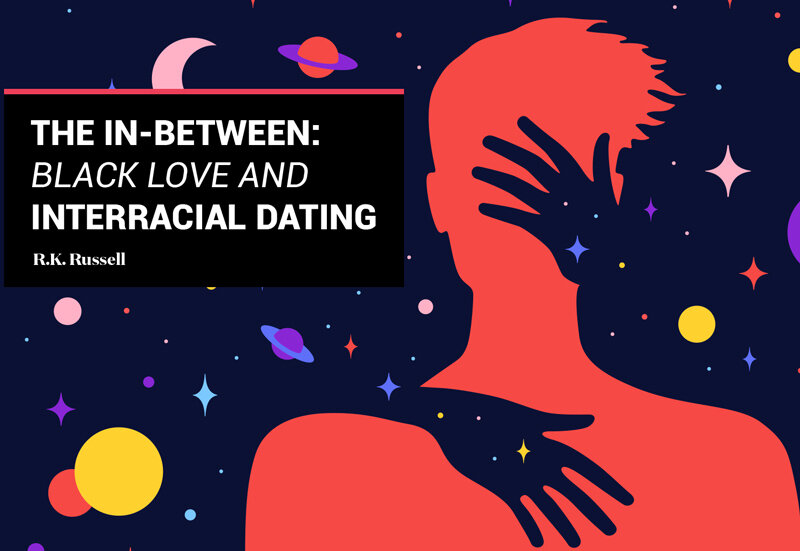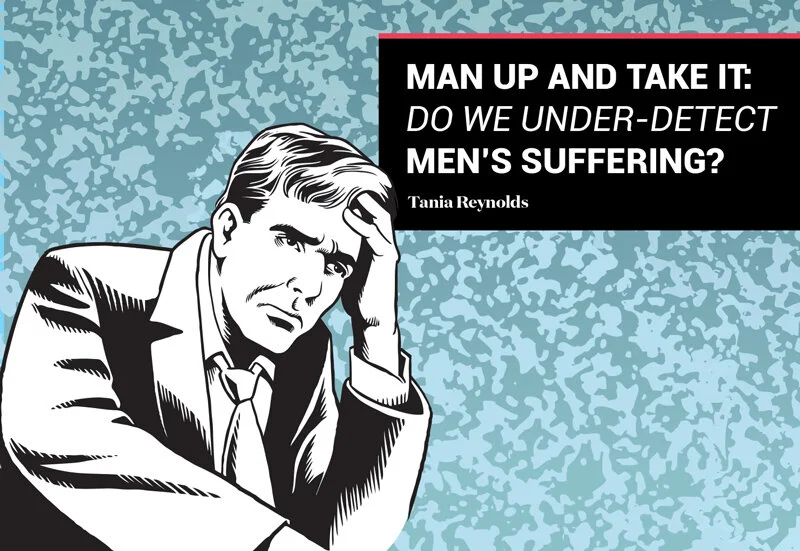The In-Between: Black Love and Interracial Dating
Around the age of six, I remember my mother and aunt chasing me up to my room while I screamed and laughed. They threw me on the bed, growling like monsters from the cartoons I watched, and tickled me until my ribs felt like they would pierce my lungs from sheer laughter. Just over my hysterical shouting, I could hear my aunt and mother repeating a mantra in unison. "If she can't use your comb, don't bring her home!" We were playing around, and the memory is one of love and joy, but my family sought to teach me an important lesson that day. Though it seems harsh to me to instill this idea in someone so young, I understand its importance and the importance of encouraging black love, because I grew up as a minority in the United States.
Just like it sounds, black love is the romantic bond between two African Americans who share a culture and history, but its significance to the black community is much more. Black love is a rebellion against a legacy of conditioning through slavery, as well as the oppression and systemic racism our people are still fighting to this day — the same history and ongoing racism that has brought recent movements like Black Lives Matter to a head. Even today, now that I am in an interracial relationship with a white man, I know why my mother and aunt were talking to a six-year-old boy about black love. This leaves me wondering: does my being in an interracial relationship discredit all the years of supporting, protecting, and celebrating black love? Is my relationship detrimental to the black community?
As I understood it most of my life, black love is in its own right one of the most revolutionary acts in which we can partake — healing generational trauma through love. After our people were chained like animals and brought west to the New World as cargo on boats, we endured generations of enslavement in which familial and romantic bonds could be ripped apart at any time. Our men, women, and children were regularly sold or otherwise separated from each other at the whim and mercy of slave owners. Therefore, It is no surprise that fragmented love and families became our norm — healthy, long-lasting love was all but impossible. The history of the United States is like a gushing wound for a lot of us who live here, but instead of truly mending this wound through reparations and a national apology, America tries to put a band-aid on it with performative political statements, supportive branding by companies, and surface-level change. Then we wonder why minorities still feel unwanted and alienated. Specifically, in the American black community, we fight daily for what our country calls our national right to life, love, and the pursuit of happiness. Through the union of black couples, we fight against the legacy of trauma that scarred our ancestors' backs, leaving marks that still remain on our hearts and on our families. As phenomenal as that definition of black love is, I now find it incomplete. As I know it now, black love is also about self-love, seeing yourself, your heritage, culture, skin color, and hair texture on and within another, and seeing it as beautiful.
After my stepfather passed when I was seven, my mother moved us to Dallas, Texas for a new lease on life. Dallas had better opportunities than those in our rough neighborhood back in Buffalo, but our new home was far less diverse. Since it was just my mother and me most of the time, we grew incredibly close. When I was in middle school, I got into my first real relationship. I told my mother about my new girlfriend because I told my mother everything. She reserved her questions and let me ramble, spilling out facts about how we met, how we started dating, and how I felt about her in breathless succession. Finally, I realized I wasn’t giving her the full picture. I was telling stories about my girlfriend, but I was saying nothing that would help my mother imagine and visualize her. So I started describing her, instead. She wore glasses atop high cheekbones, framing her oval face. She had womanly curves much before her time. Her hair was always done up, but I loved her long micro braids the most. Her skin was smooth, her complexion flawless, and she didn't wear or need makeup. She was milk chocolate and honey swirled into one.
I felt pride swell up when telling my mother about my black girlfriend as if I was doing my part for our community. Though it was my first relationship, it felt like love to me — the black love I had grown up seeing, hearing about, and hoping to one day exemplify. For black couples, I thought, love isn't just about the two people involved; it’s also about sending a message back to our community about loving ourselves and one another. I was grateful I could be a beacon of that message at such a young age.
Fast forward to the present day.
I'm 28, I'm openly bisexual, and I'm dating a white man. I am a professional football player — the first to come out as openly LGBT while still actively pursuing his football career. When I came out, my boyfriend and I prepared for public backlash. There was bound to be a pushback, so we spent hours preparing mentally and emotionally for the homophobia we expected to encounter. Of course, there was some of that, but a surprising number of attacks upon our relationship were not about our shared gender — they were about our different skin colors. We both had to endure racial slurs from people, as well as from people within the LGBT community. Most of the vitriol rolled off us like water off a duck's back, but some was harder to ignore; specifically, the messages from other black queer people accusing me of self-hatred and internalized racism.
Naively, I believed that the community of people who were both black and queer would embrace me even if no one else would. Quickly I discovered that although the black community and the queer community seemed at odds with each other most of the time, they apparently agreed on one principle: interracial dating is wrong.
Love never seemed like a good enough answer to questions like:
If he's bisexual, why didn't he choose to be with a woman?
Why couldn't he at least find another black man to date?
What's so special about this white boy?
Having grown up in a predominantly white neighborhood, I was used to feeling alienated from the black community for not being black enough, or for talking or dressing too white. I was used to color being a topic of discussion. Still, I was unaware that the queer community could be just as color-struck. At 28, I was no longer that little boy being tickled by his aunt and mom, but a grown man being attacked online by numerous strangers. And yet, were these people all telling me the same thing? That as a black man, it was my duty to find love only within the black community?
My whole life, I've been proud of my experience with black love. I've advocated for black love in every phase of my life. Whether it was through film, television, books, or relationships, I always cherished and uplifted black love. And yet, now I worried that because of my relationship with a white man, I was no longer allowed to embody black love.
Coming out for me was about survival. How long can someone wake up every day, look in the mirror, and feel at war with the person staring back at them? How long can a person hope to survive when they hate core parts of who they are? Although I let the shaming and hateful messages get to me for a while, I’ve finally let go of that repression too. I again feel proud of my relationship, of the love that comes from my boyfriend, of the freedom that comes with being honest and open about my sexuality and relationship.
After giving it a lot of thought, I came to understand that my relationship with my boyfriend is not a reflection of internalized racism, self-hatred, or anything of that sort. It’s an evolution of my definition of black love and self-love. Now, when I look in the mirror, I fall in love with the bisexual black man staring back at me.
Every day, I’m realizing more and more that I still have black love in my life because I love myself. My heritage, my skin, my hair, my everything, I love it all. I wouldn't have come out without that all-encompassing love. Black love is still very much a part of my life. I was a product of black love, as are my brothers, sisters, nephews, cousins, and nieces. After talking with my boyfriend, we've decided that one day in the future, our kids will be black. I will still read my people's stories and support films like The Photograph (2020), Queen & Slim (2019), If Beale Street Could Talk (2018), Moonlight (2016), and so many more yet to come. And I will do so with my boyfriend.
The LGBT community is full of diverse people, colors, sexualities, and religions; despite our differences, we must learn to support one another. I want the community to be an example to the rest of America of what a real melting pot should be and act like: uplifting, loving, respectful, and supportive. Our strength as a community comes from love and unity. Black love. Interracial love. Queer love. All love — and that means straight love too. I want us to inspire others and show that we mean it when we say “Love is love.”
I am proud of the legacy of black Americans who put their lives on the line to fight injustice in our society and secure the same freedoms for us that other communities can take for granted. Black activists have been instrumental in pushing our country to live up to its great promise by rising up against racism, homophobia, and other national forms of hate. Personally, I will continue my ancestors’ efforts by fighting for the right of every person to live how they want, love whom they want, and be respected just like everyone else. Black love, at its base, teaches us to love ourselves completely. That’s a lesson that can benefit every couple. It’s something we can all believe in, and deserves to be celebrated — whether we are in an interracial relationship or not.
Published Mar 18, 2021
Updated Mar 6, 2024
Published in Issue IX: Community












